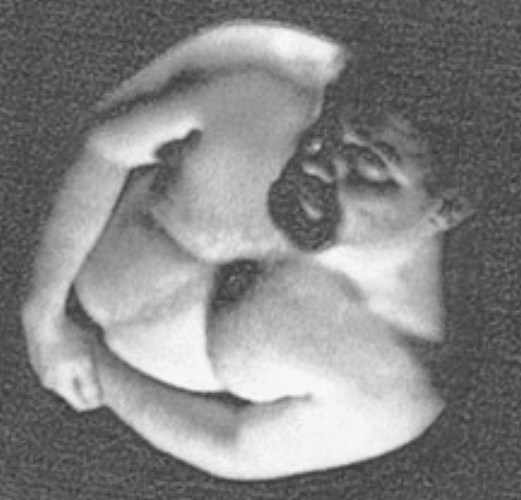The house of du Bois
Louis DuBois my 9th great grandfather Birth21-10-1626 in Pasora De Calais,Artois,Wicres, France Death 23 Jun 1696 inKingston, Ulster, New York, United States (son of Chretien DuBois my 10th greatgrandfather Birth 1597 in Wicres, Nord, Nord-Pas-de-Calais, France Death 10 Oct1655 in Wicres, Nord-Pas-de-Calais, and France and Francoise le Poivre Birth1600 in Wicres, La Bassee, Artois, France Death 1650 in Herlies, Nord,Nord-Pas-de-Calais, France)
"......son of Louis of New Paltz andKingston, b. at Wicres, inprovince of Artois, Prance, Oct. 23, 162b, d. at Kingston, N. V., June, 1696, was a Huguenot, known as Louis de Wall, or Louis the Walloon, refugee to America 1660, his gun, oak chest and armorial sauil" box are still in the family, was a magistrate of the town of Hurley, his first place of resi- dence after landing in America, leader of 12 patentees who purchased a tract from the Indians, of which the point on the Shawangunk, now known as "Sky-top" was a boundary mark, the tract included part of the present townships of New Paltz, Rosendale and Esopus, ami the whole of Lloyd, fust elder of the French churchat New Paltz, the record of whichis still extant in his handwriting, the twelve paten- tees, or " Duzine," were the undisputed civil government centered at New Paltzfor more than a century (m.Catherine Blancon or Blanshan, 10 Oct. 1655, at Mannheim in the Palatinate of the Rhine, German)'); son of Chretien, designated in the record of his son's marriage at Mannheim as the deceased Chretien du Bois, resident of Wicies, b. perhaps about 1600.Mons. C. DuBois Gregoire, U. S.Consul, says that Wicres has a population of 300, and that many farmers in the vicinity have pointed out to him the farm which the tradition of the country recognizes to have belonged to the DuBoises. The obliteration and destruction of all Protestant family records in France, carried into effect by order of Louis XIV, who at the time of the du Bois expatriation was King of France, have rendered it impossible for the descendants of Huguenots to trace their family records in that country beyond the time of that monarch; and especially so, if they were in any way allied to a noble family and in a possi- ble line of succession to the estate.Not only were their lands and goods confiscated, but their very names were erased or torn out in baptismal and genealogical registers. Accordingly, the archivists have found the records of the canton of La B. issue, and in the village of Wicres, torn or cut or otherwise mutilated where the Christian names occurred. M.DuBois Gregoire shows that the Wicies register is mutilated at the spot of the Christian names of the eldest sons of Chretien du Bois, of whom our hist American ancestor was a son. The inference is unmistakable. But in the eleventh century surnames were first assumed as distinctive marks of nobility. And all family surnames which can be traced prior to the thirteenth century are of noble origin. The name du Bois is of feudal origin and is one of the oldest if not the most ancient patronymic which has descended unchanged to this time. The authors of the" Maison Royale de France" speak of the family du Bois as "Grand Masters of the Forests of France." The records in the royal library of Paris trace lines of descent from Geoffroi du Bois, a Knight banneret under William the Conqueror, and Anselme and Dufourney attribute a common origin to the families of du Bois and Pierrepont, in Macquaire du Bois, Count de Roussyin mo, whose ancestor built the Castle de Roussy in 948 and added this title to his patronymic. The Castle de Roussy was situated in Artois, where, some suppose, the name du Bois to have originated, although others trace its origin to Normandy. It was evidently an old name in Neustria, before the time of Rollo.All authorities on historic genealogy concur in the belief that the ancient families of this surname have a common origin. There is AMERICAN ANCESTRY. 27 reason 10 believe that the Chr6tien afore said was son, or near relative of Pierre, Seigneur of Fontaines Morau, whose son Louis was lieutenant-general of the armies .if the king; Pierre's father was Antoiiic, king's councillor and ambassador in the Pays Has, or Netherlands; son of Astrc-Dioilie, a Protestant, who afterward re-nounced his faith,and in 15S4 was restored 10 hisnobility and was declared to be descended by ancientry or dignity of birth, from "la maison du Hois en Artois;" son of Jean, king's council or and controller- general of the finances (m. Oct. 17, 1403, the niece of the chancellor of France); son of Jean, Seigneur de Fontaines, maitic d'hotel of Charles VIII, d. 1507. This record appears under the head of duBois de Givri and du Hois deLeuville and is continued down to1761. Had Chretien renounced his faith as did Astremoine, we should doubtless have had the linking kept intact with this " Mouse of du Bois in Artois," as it is from this original stock (that all collateral branches in Artoisde- duce their origin; whether the original seat of the family was Artois or Normandy all ancient duHois families who were entitled by nobiliary right to spell their name with a capital B have a common origin prior to the eleventh century. In feudal times the surname could not belong to two families without the addition of an agnomen, of which there are many examples in France and Belgium."
http://archive.org/stream/americanancestry06hugh/americanancestry06hugh_djvu.txt
http://pages.infinit.net/barbeaum/huga/




























